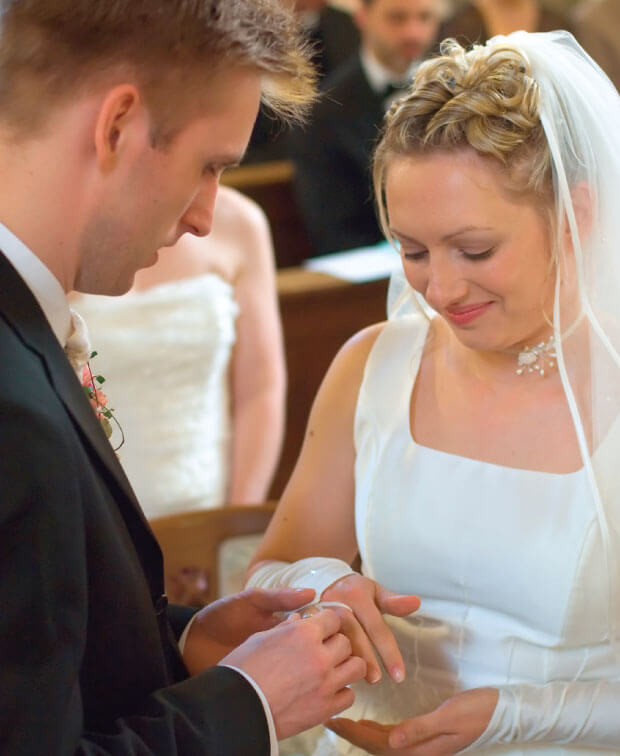
Jesus teaches us about ourselves in Sunday’s gospel. He tells us that our capacity to love is one way in which we reflect God’s image and likeness. We can only fully become the person God creates us to be through loving one another. When another teacher asks about divorce, Jesus quotes the first book of the bible. God made us male and female to form lasting relationships of love in marriage.
In working through friendships and dating relationships, teens learn to love and communicate through practice. If teens don’t break up and mend relationships, never communicate feelings, or never struggle to keep their own identity while caring about another, they may later drift into marriage with little ability to be intimate with another person.
Two selves do not become one self in marriage. Rather two separate people promise to work faithfully at loving each other throughout their lives, no matter what their lives bring. Each promises to open his or her deepest self to the other. Each gives to the other without giving his or herself totally away. They live and love in the mystery of being persons who never fully understand themselves, let alone another.
To be able to love is a capacity we learn from those who love us. First, parents and family. If parents or caregivers feed and rock a new baby, change diapers and coo the child to sleep, the baby thrives. Neglect and abuse threaten babies’ lives.
Second, friends. In elementary school friends share activities, do projects, and play together. In the early teen years bodies mature physically. We feel attractions to others. Our brains develop new circuits that give us the ability to see ourselves as others see us. Friends begin to influence us and help us discover who we are and want to be. These relationships are fun, confusing, exciting, and often painful.
If one risks sharing a little bit of one’s soul only to have the supposed friend blab this confidence all over school, it’s painful. Temptation: Never trust anyone again. Solution: Risk finding a more trustworthy friend.
Marriage relationships depend on two people’s willingness and capacity to share their deepest selves. Teen friendships give us practice in communicating, sharing, listening, and risking affection.
In the sacrament of marriage a man and woman each promise love and fidelity to the other. In marriage, a woman and man share their lives, their money, many hours of their days, their meals. They have children together whom their love nurtures through childhood and into full adulthood. They become one family. Self-giving love like this takes practice. Marriage is a sacrament of service to one another.
What is annulment?
Annulment is a process in which the Catholic Church discerns whether the sacrament of marriage ever took place between a man and woman. Every diocese has a marriage tribunal through which canon lawyers examine the grounds for annulment in cases where marriages fail. Canon law is the name for church law. A canon lawyer is an expert in Church law.
Annulment is not divorce. A divorce ends a marriage. An annulment states that one or both partners in a marriage was unable or unwilling at the time the couple married to make the commitment marriage vows express. An annulment declares sacramental marriage never took place.
The Catholic Church teaches that sacramental marriage cannot be undone. The Church recognizes such grounds for annulment as unwillingness to have children, force, fear, no intention originally of making a life-long commitment, abuse, and fraud (marrying just to gain citizenship or not revealing a previous marriage). Often the grounds are immaturity, the inability to enter into a lifelong commitment.
